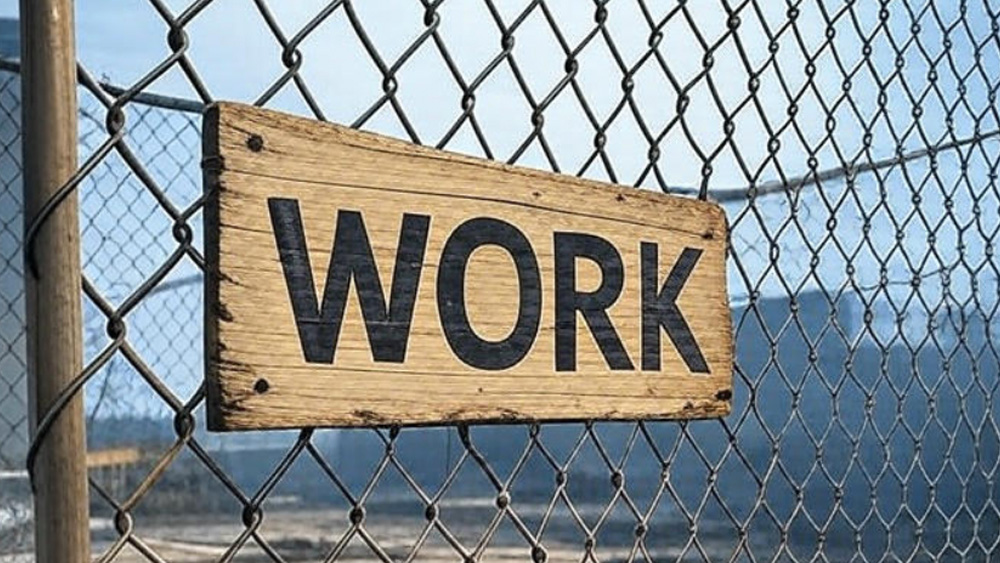Work stress doesn’t stay at work. It follows you home like a shadow, sits at your dinner table uninvited, and crawls into bed with you at night. Those Sunday scaries? The constant mental chatter about deadlines? The guilt when you’re “relaxing” but thinking about tomorrow’s meetings? That’s work bleeding into every corner of your life like poison.
Here are 30 boundaries that will help you reclaim your mental space, protect your relationships, and remember what it feels like to actually be alive instead of just surviving.
Stop the Mental Ping-Pong
1. No email before breakfast.
2. Mute notifications during focus time.
3. No work messaging after hours.
Your nervous system can’t tell the difference between a work emergency and an actual emergency. Every notification triggers the same primal stress response that once helped humans escape predators. When you’re constantly available, your brain never gets the signal that it’s safe to relax. It’s like living with a smoke alarm that never stops screaming.
Create notification-free zones. Your morning coffee. Your commute home. Family dinner. Give your nervous system permission to downshift from survival mode.
Mental health impact: Constant connectivity keeps you trapped in chronic stress. Your cortisol levels stay elevated like you’re being chased by something that’s never coming. It makes it harder to sleep, focus, and regulate emotions. You become a walking raw nerve.
Relationship impact: When you’re always half-listening for the next ping, you’re never fully present with the people who matter most. They can feel your divided attention like a slap.
End the Guilt Spiral
4. No apologizing for saying no.
5. No guilt yeses.
6. Available doesn’t equal yes.
Guilt is a boundary destroyer. It convinces you that protecting your time and energy is selfish, that your needs don’t matter as much as everyone else’s demands. But here’s the brutal truth: saying yes when you mean no breeds resentment that eats you alive from the inside.
Practice saying “I can’t take that on right now” without the three-paragraph justification. Notice how your body feels when you honor your limits instead of bulldozing through them like they don’t exist.
Mental health impact: Chronic people-pleasing is soul-crushing. It disconnects you from your own needs and teaches others that your boundaries are suggestions, not requirements.
Relationship impact: When you say yes out of guilt, you show up resentful and depleted. Your family gets the stressed, bitter version of you instead of someone who chose to be there.
Protect Your Energy Like It’s Your Life Force
7. Choose based on energy, not just time.
8. Name when you’re at capacity.
9. Calendar blocks for deep work.
You wouldn’t spend money you don’t have. Stop spending energy you don’t have. Energy management is the difference between surviving your days like a zombie and actually living them like a human being.
Start tracking your energy patterns like your life depends on it. When do you think most clearly? When do you hit walls? Schedule your most important work during your peak hours, not just your available hours.
Mental health impact: Ignoring your energy rhythms leads to decision fatigue, emotional overwhelm, and that feeling of running on empty even when you’ve had enough sleep. You become a shell of yourself.
Relationship impact: When you’re energy-depleted, everything feels harder. Conversations become conflicts. Small requests feel overwhelming. You snap at people you love because you have nothing left to give.
Create Recovery Rituals
10. Lunch away from screen.
11. Breaks even when in flow.
12. Guard weekends.
13. Consistent log-off time.
Your brain needs transition time between work mode and life mode. Without it, you carry work stress into your personal time like invisible baggage that gets heavier every day.
Create rituals that signal the workday is over. Change clothes. Take a walk. Listen to music. Do something that tells your nervous system “work is done, you can breathe now.”
Mental health impact: Without recovery time, stress accumulates like compound interest. You wake up already behind, already overwhelmed, already defeated before the day begins.
Relationship impact: When you don’t transition out of work mode, your family gets the work version of you—distracted, task-focused, impatient, emotionally unavailable.
Stop the Urgency Addiction
14. Urgency isn’t my responsibility.
15. No last-minute calls unless urgent.
16. Push back on bad timelines.
Not everything urgent is important. Not everything important is urgent. When you react to every “urgent” request like it’s life or death, you train others to treat everything as urgent. You become addicted to the adrenaline rush of crisis mode.
Ask yourself: What happens if this waits until tomorrow? Usually, the answer is “absolutely nothing catastrophic.”
Mental health impact: Living in constant urgency mode keeps your stress response activated like a car engine that never turns off. You lose the ability to distinguish between real priorities and manufactured crises.
Relationship impact: When everything feels urgent, nothing feels important—including time with family and friends. The people you love become interruptions to your urgency addiction.
Communicate Like Your Sanity Depends on It
17. Ask for deadline clarity.
18. No over-explaining.
19. Share updates on my terms.
20. Don’t repeat myself.
Clear communication prevents 90% of work drama and the mental torture that comes with it. Stop reading minds. Stop assuming. Start asking direct questions and giving direct answers.
Replace “I’m so sorry but I think maybe we could possibly…” with “I need clarification on the timeline.” Cut the apologetic word vomit.
Mental health impact: Unclear communication creates anxiety that gnaws at you. You spend mental energy worrying about what people think instead of focusing on what needs to be done.
Relationship impact: When you can’t communicate clearly at work, it’s harder to communicate clearly at home. Boundaries require clear communication, not diplomatic word salad.
Honor Your Human Needs
21. Time off isn’t justified.
22. My calendar reflects my priorities.
23. Personal priorities on calendar.
You’re not a productivity machine. You’re a human being with physical and emotional needs that don’t disappear because you have deadlines. Treating yourself like a resource to be optimized leads to burnout that feels like drowning while everyone around you is breathing fine.
Put your doctor’s appointments on your calendar. Block time for lunch. Schedule your kids’ events like client meetings. Your personal needs aren’t interruptions to your work—they’re requirements for sustainable performance.
Mental health impact: Ignoring basic needs (food, movement, medical care) creates a constant undercurrent of stress. Your body keeps score even when your mind tries to push through.
Relationship impact: When you don’t prioritize your relationships on your calendar, they get whatever energy is leftover—which is usually not much more than fumes.
Create Thinking Space
24. Pause before replying.
25. Follow up once, then move on.
26. Buffer time between meetings.
Back-to-back meetings and instant responses create a reactive mindset that turns you into a pinball bouncing between other people’s priorities. You stop thinking strategically and start responding frantically.
Build buffer time into your schedule. Let messages sit for an hour (or a day) before responding. Give your brain space to process instead of react.
Mental health impact: Constant reactivity keeps you in survival mode. You lose access to creative thinking and problem-solving abilities. Everything becomes a fire to put out.
Relationship impact: When you’re always in reactive mode, you bring that energy home. Small problems feel like big problems. Everyone and everything feels demanding because you’ve lost the ability to respond thoughtfully.
Reclaim Your Decision-Making Power
27. No meetings without agendas.
28. Delegate more.
29. Ask for help sooner.
30. Boundaries aren’t debates.
Stop attending meetings that waste your time. Stop doing work that someone else could do. Stop suffering in silence when you’re drowning. Stop explaining your boundaries like they’re suggestions up for negotiation.
Mental health impact: Taking back control over your time and energy reduces the feeling of helplessness that feeds anxiety and depression.
Relationship impact: When you feel in control of your work life, you stop bringing home the stress of feeling powerless and overwhelmed.
The Real Benefits of Boundaries
These boundaries aren’t just about work—they’re about reclaiming your life from the slow death of constant availability. When you stop being a 24/7 emergency contact for other people’s problems, you become present for the moments that actually matter.
Mental health improves when you have predictable downtime. Relationships improve when you show up as a whole person instead of whatever’s left after work extracts everything from you like a vampire.
Sleep gets better when your brain knows the workday has a clear endpoint. Anxiety decreases when you’re not constantly anticipating the next demand on your time and energy.
Start Here
Pick three boundaries that make you feel slightly sick to implement. That discomfort is your compass – it’s pointing directly to where you need boundaries most desperately.
Start small. Implement one boundary for a week before adding another. Notice how your energy shifts. Notice how your relationships change when you’re actually present instead of physically there but mentally elsewhere.
Your mental health matters. Your relationships matter. Your life outside of work matters more than any deadline or meeting or urgent request. These boundaries aren’t about being less committed to your job – they’re about being more committed to staying human.
Because the goal isn’t just to be productive.
It’s to be alive.
And being alive requires protecting the parts of yourself that work tries to consume.
Stay safe.
And don’t forget to be awesome.






